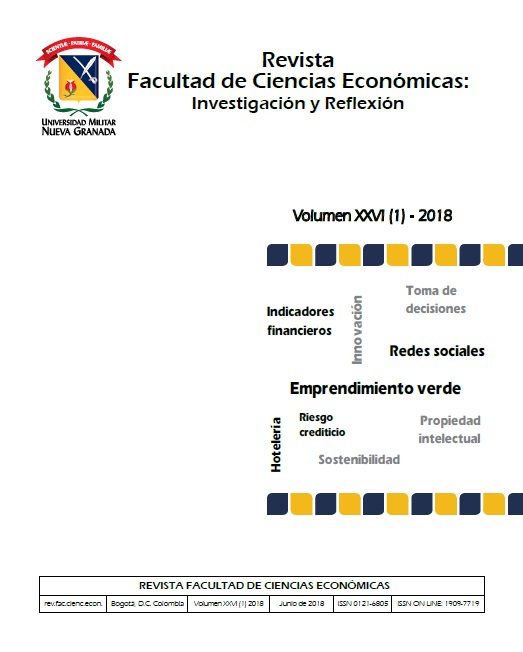Contributions of Philosophy of Science, in the Perspective of Popper and Lakatos, for the Study of Innovation: An Analysis of the Neoclassical Schumpeterian and Neo-schumpeterian Theories
Abstract
The Schumpeterian and neo-schumpeterian theories represent pillars on which the subject of innovation developed and gained expression. Moreover, innovation is an independent area both in national and international congresses. The objective of this essay is to investigate – from two criteria of delimitation (Popper and Lakatos) – the scientificity of innovation theory. Innovation is analyzed from three macro themes: (1) the neoclassical current of economic theory; (2) the introduction of innovation theory and reviews of the more recent Schumpeter manuscripts; (3) the contributions brought by the neo-chumpeterian innovation current. In concluding that the subject of innovation as analyzed meets the criteria listed to categorize the scientificity according to Popper and Lakatos, implications for the field of innovation studies are discussed, such as the construction/transmission of knowledge, the escape from “common sense”, and the use of the “method” as a resource for building scientific knowledge.
Downloads
Languages:
enReferences
Aghion, P., & Festré, A. (2017). Schumpeterian growth theory, Schumpeter, and growth policy design. Journal of Evolutionary Economics, 27(1), 25-42. https://doi.org/10.1007/s00191-016-0465-5
Albach, H. (1993). La Economia de la empresa como ciencia. Alcalá: Universidad de Alcalá.
Baregheh, A., Rowley, J., & Sambrook, S. (2009). Towards a multidisciplinary definition of innovation. Management decision, 47(8), 1323-1339. https://doi.org/10.1108/00251740910984578
Boldyrev, I. A. (2012). Philosophy of Science or Science and Technology Studies? Economic Methodology and Auction Theory. International Studies in the Philosophy of Science, 26(3), 289-307. https://doi.org/10.1080/02698595.2012.731732
Bunge, M. A. (1980). Ciência e desenvolvimento. Itatiaia.
Chalmers, A. F. (1993). O que é ciência, afinal?./AF Chalmers; Cap. VIII, Teorias como Estruturas: Os paradigmas de Kuhn, p: 123-133, tradução de Raul Fiker.
Collodel, M. (2016). Was Feyerabend a Popperian? Methodological issues in the history of the philosophy of science. Studies in History and Philosophy of Science Part A, 57, 27-56. https://doi.org/10.1016/j.shpsa.2015.08.004
Damke, E. J., Walter, S. A., & da Silva, E. D. (2010). A Administração é uma Ciência? Reflexões Epistemológicas acerca de sua Cientificidade. Revista de Ciências da Administração, 12(28), 127.
De Mattos, L. C. (2003). O que diria Popper à literatura administrativa de mercado?. Revista de Administração de Empresas, 43(1), 1-11.
De Mattos, P. L. C. (2009). "Administração é ciência ou arte?": o que podemos aprender com este mal-entendido?. RAE-Revista de Administração de Empresas, 49(3), 349-360. https://doi.org/10.1590/S0034-75902009000300009
Dos Reis, J. A. F., Colla, J. E., & Cruz, J. A. W. (2013). ADMINISTRAÇÃO: REFLEXÕES A RESPEITO DE SUA CIENTIFICIDADE. Revista de Administração da UEG, 4(3), 10.
Dosi, G. (2006). Technological Paradigms and Technological Trajectories. In: Revista Brasileira de Inovação. 1(5).
Dosi, G., Fagiolo, G., & Roventini, A. (2010). Schumpeter meeting Keynes: A policy-friendly model of endogenous growth and business cycles. Journal of Economic Dynamics and Control, 34(9), 1748-1767. https://doi.org/10.1016/j.jedc.2010.06.018
Erixon, L. (2014). Is firm renewal stimulated by negative shocks? The status of negative driving forces in Schumpeterian and Darwinian economics. Cambridge Journal of Economics, beu068.
Fagerberg, J. (2004). Innovation: a guide to the literature.
García Jiménez, L. (2008). Aproximación epistemológica al concepto de ciencia: una propuesta básica a partir de Kuhn, Popper, Lakatos y Feyerabend. Andamios, 4(8), 185-202.
Gomes, E. D. O., Amarante, J. M., Caldas, L. M., Basaglia, M. M., & Cantagallo, M. V. (2013). REPENSANDO A ADMINISTRAÇÃO COMO CIÊNCIA: UM ENSAIO TEÓRICO. Maringá Management, 10(3), 7-16.
Hands, D. W. (1985). Karl Popper and economic methodology: a new look. Economics and Philosophy, 1(01), 83-99. https://doi.org/10.1017/S0266267100001905
Johann, E. R., & Duclós, L. C. (2013). A Administração como ciência orientada à prática. adm, 6, 2.
Kotsemir, M. N., Abroskin, A., & Meissner, D. (2013). Innovation concepts and typology–an evolutionary discussion.
Kuhn, T. S. (2003). A estrutura das revoluções científicas. Perspectiva.
Lakatos, I. (1971). History of science and its rational reconstructions. In PSA 1970 (pp. 91-136). Springer Netherlands. https://doi.org/10.1007/978-94-010-3142-4_7
Lakatos, I., & Musgrave, A. (1979). A crítica e o desenvolvimento do conhecimento: quarto volume das atas do Colóquio Internacional sobre Filosofia da Ciência, realizado em Londres em 1965. Tradução de Octavio Mendes Cajado. São Paulo: Cultrix.
Lekachman, R. (1973). História das idéias econômicas. Bloch.
Lowenberg, A. D. (1989). Neoclassical economics as a theory of politics and institutions. Cato J., 9, 619.
Martini, R. A. (2014). UM ENSAIO SOBRE OS PROGRAMAS DE PESQUISA LAKATOSIANOS E A METODOLOGIA DA ECONOMIA NEOCLÁSSICA: CONTRIBUIÇÕES E CRÍTICAS. Análise Econômica, 32(62).
Martins, T. S., Rocha, D. T. D., & Cruz, J. A. W. (2011). Uma análise crítico-epistemológica da administração: construção, reconstrução e desconstrução?= A critical-epistemological analysis of business administration: construction, reconstruction and deconstruction?. Unopar científica: ciências jurídicas e empresariais.
Nelson, R. R. (2006). Schumpeter e as pesquisas contemporâneas sobre a economia da inovação. NELSON, Richard R. As fontes do crescimento econômico. Campinas: Editora da UNICAMP, 145-163.
Persson, U. (2016). Is Falsification Falsifiable?. Foundations of Science, 21(3), 461-475. https://doi.org/10.1007/s10699-015-9420-4
Popper, K. R. (1975). Conhecimento objetivo: uma abordagem evolucionária. Editora da Universidade de São Paulo.
Schumpeter, J. A. (1982). Teoria do desenvolvimento econômico: uma investigação sobre lucros, capital, crédito, juro eo ciclo econômico. São Paulo: Abril Cultural.
Silva, S. T. (2009). On evolutionary technological change and economic growth: Lakatos as a starting point for appraisal. Journal of evolutionary economics, 19(1), 111-135. https://doi.org/10.1007/s00191-008-0115-7
Simon, H. (1965). Comportamento Administrativo. FGV.
Sraffa, P. (1988). As leis dos rendimentos sob condições de concorrência. Clássicos de Literatura Econômica.
Szmrecsányi, T. (2009). Joseph A. Schumpeter-Economic Theory and Entrepreneurial History. RBI-Revista Brasileira de Inovação, 1(2), 201-224. https://doi.org/10.20396/rbi.v1i2.8648859
Taffarel, M., & da Silva, E. D. (2015). A cientificidade da administração em debate. Revista Administração em Diálogo-RAD, 15(3). https://doi.org/10.20946/rad.v15i3.13098
Tigre, P. (2006). Gestão da inovação: a economia da tecnologia no Brasil (Vol. 1). Elsevier Brasil.
Tigre, P. B. (1998). Inovação e teorias da firma em três paradigmas. Revista de economia contemporânea, 3, 67-111.
Weintraub, E. R. (1988). The neo-Walrasian program is empirically progressive. na. https://doi.org/10.1017/CBO9780511895760.011
Winter, S. G., & Nelson, R. R. (1982). An evolutionary theory of economic change. University of Illinois at Urbana-Champaign's Academy for Entrepreneurial Leadership Historical Research Reference in Entrepreneurship












